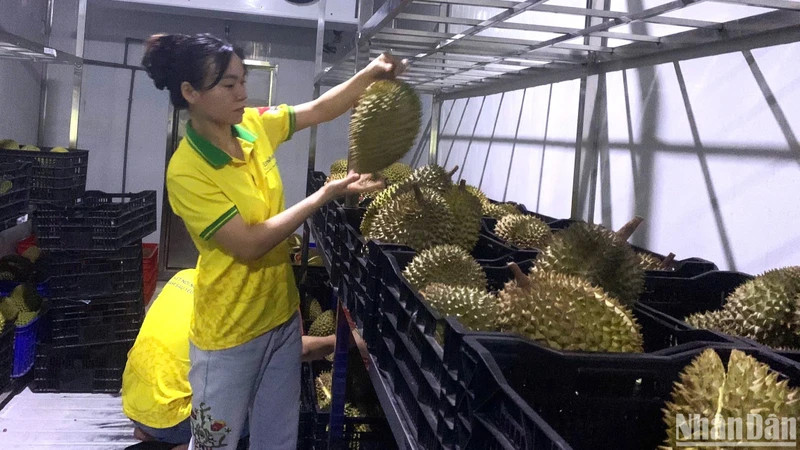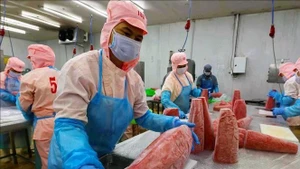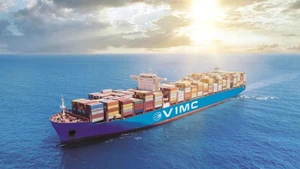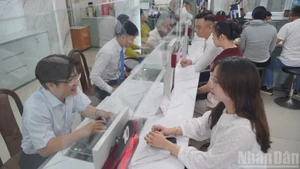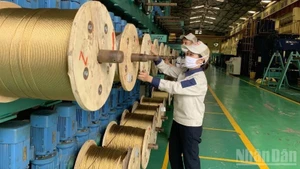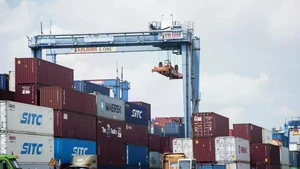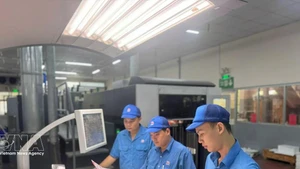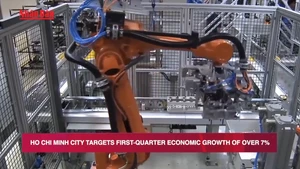Opportunities for exporting Vietnamese durian to China
On August 19, during the visit of General Secretary and President To Lam to China, the Ministry of Agriculture and Rural Development of Vietnam and the General Department of Customs of China signed a Protocol on exporting frozen durian to China. After the Protocol was signed and came into effect, it opened up many opportunities but also challenges for businesses, people and localities in implementing production and export organisation.
According to Director of the Plant Protection Department Huynh Tan Dat, the signed decree has great significance for the Vietnamese durian industry, promising a breakthrough in the export turnover of this fruit in the coming time. With the recently signed protocol, with current capacity and market demand, China forecasts that Vietnam's frozen durian export turnover in 2024 can reach 300 million USD if it completes business registration early to start exporting.
Vietnamese enterprises exporting frozen products will have less pressure in complying with regulations on plant quarantine (potentially harmful organisms accompanying fresh fruit) and can sell deep into the Chinese mainland thanks to the long preservation time. Frozen durian can be exported by road, sea and air.
Although the export potential is great, according to Mr. Huynh Tan Dat, Vietnamese frozen durian will face many challenges and need to be identified and prepared for. Especially the issue of ensuring food safety requirements, packaging processes, traceability and food safety control processes.
According to Order 248, foreign food production enterprises exporting to China must comply with new registration regulations. This regulation requires establishments to register and be licensed before exporting products to the Chinese market.
According to Order No.248, the registration of aquatic products for export on the China International Trade Single Window (CIFER) of the General Administration of Customs of (GACC) is required. Enterprises must have a food safety management system assessed by GACC according to 13 criteria and recognized as equivalent to Chinese standards. Some criteria include raw material management standards and measures, traceability, cleaning and sterilization, chemical/waste control, etc.
For frozen durian, enterprises must establish an effective food safety management system. Cold storage must meet the standards, as well as the quality of water, water, and steam used in the production process must be guaranteed.
After receiving the application from the enterprise, GACC will examine, process the application and notify the results on the CIFER system. Enterprises that meet the requirements will receive a registration number in China. The registration license is valid for 5 years from the date of issue.
Many difficulties and challenges
Sharing about the current difficulties and challenges that Vietnamese enterprises are facing when exporting durian to China, Deputy Director of the Plant Protection Department under the Ministry of Agriculture and Rural Development Nguyen Quang Hieu said that China is currently testing 2,700 hectares of durian in the south of Hainan Island. Next, some Vietnamese enterprises have not been aware of complying with the Protocol signed between the two countries, causing many technical violations to occur.
According to Hieu, if there is no rectification and awareness of compliance with regulations is not raised, China will take measures to handle it. "This is very unfortunate, just because a few enterprises violate the law, the whole industry is affected," said Hieu.
Chairwoman of the Board of Directors of Ban Me Green Farm Joint Stock Company Nguyen Thi Thai Thanh said that the enterprise has been operating in the field of frozen durian since 2022, with an expected output of 4,000-5,000 tons this year.
According to Article II of the Protocol on requirements for inspection, plant quarantine and food safety for frozen durian exported to China, the Vietnamese side must ensure that stages such as peeling, segment separation and other processing of frozen durian are carried out by designated employees. To prevent cross-contamination, this employee must work in the production area throughout the processing and packaging process.
For enterprises, understanding the criteria for “designated employees” is very important to ensure the selection of the right people, helping to improve product quality.
Dat also said that in the criteria for evaluating export enterprises, there is a requirement for establishing and operating the HACCP system. Accordingly, employees need to be trained and granted HACCP certification. When these certifications are achieved, businesses will have qualified human resources, ensuring food safety for exported frozen durian.
Dat noted that exporting enterprises, packaging facilities, and growing areas must strictly comply with the regulations in the Protocol on phytosanitary requirements and plant safety for exporting frozen durian from Vietnam to China. In addition, it is necessary to focus on building brands for Vietnamese durian and frozen durian products, investing in upgrading freezing technology, techniques and product quality to meet international standards.
In order to be able to export frozen durian to the Chinese market, the Plant Protection Department will continue to provide technical support and regulations to localities, associations, growing areas, packaging facilities, and exporting businesses.
